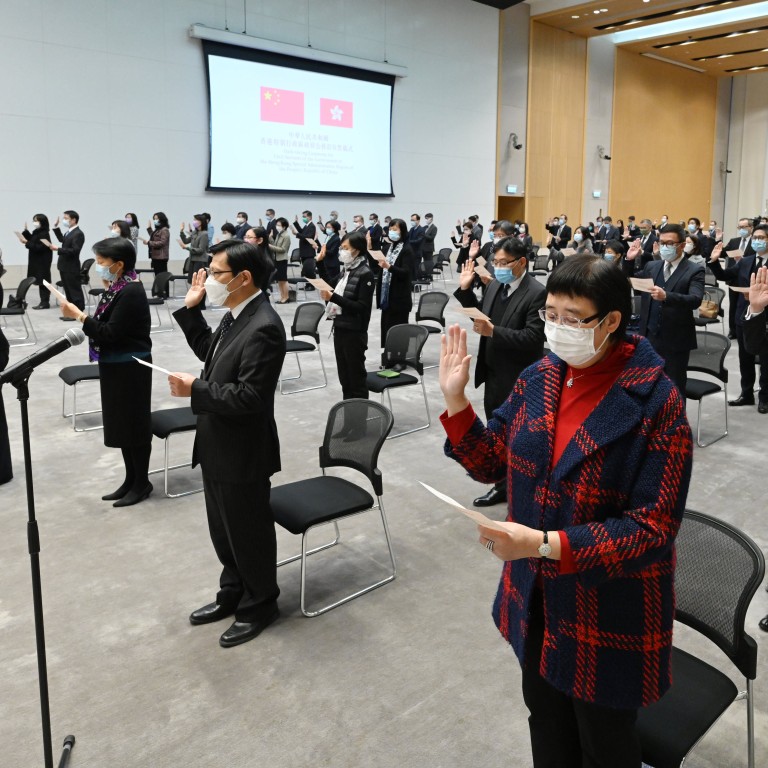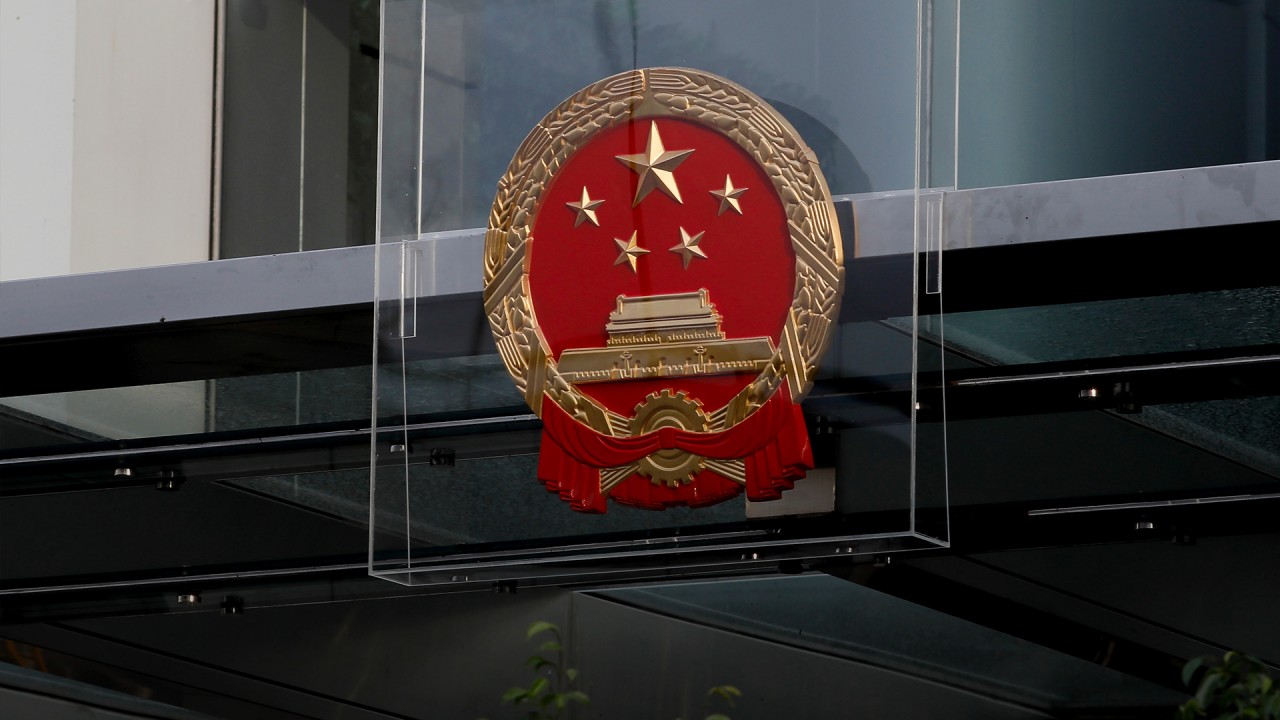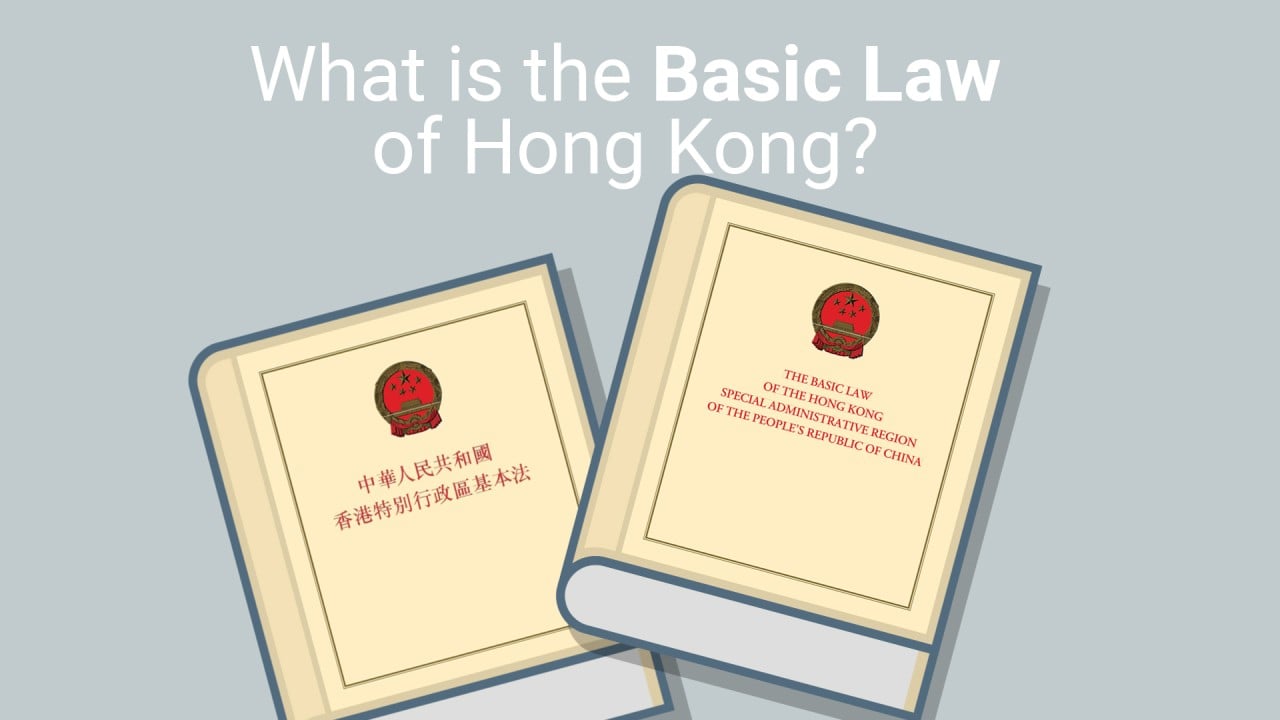
National security law: at least 150 Hong Kong district councillors face disqualification next month under new oath-taking legislation
- Councillors who ran in opposition’s unofficial primary, offered their offices as polling stations, or threatened to vote down government, at risk of unseating
- Mass disqualification warning follows new oath-taking rules for municipal-level politicians, and could slash opposition representation by more than 40 per cent
Councillors face disqualification not only for taking part in the opposition’s primary run-off last summer to pick the bloc’s Legislative Council candidates, but also for letting the camp use their district offices as polling stations, according to sources.
Officials also plan to unseat those councillors who signed a statement, issued a month before the primary, in which candidates promised to vote down the government’s budget if they were elected and the administration failed to meet the camp’s demands.
“These district councillors face disqualification when the oath-taking ceremonies take place in July,” a government source said.
The source added that all such acts were designed to facilitate the “indiscriminate obstruction” of government business, and so they fell under the definition of subversive under the national security law.
Endangering national security is one of the criteria triggering disqualification under the new patriotism rules for district councillors, the source notes.
The new system approved by Legco on May 12 extends oath-taking requirements from senior officials and lawmakers to district councillors.
The Public Offices (Candidacy and Taking Up Offices) (Miscellaneous Amendments) Ordinance 2021 gives authorities new powers to unseat “unpatriotic” district councillors and recover their salaries. Decisions to disqualify are made with reference to a list of proscribed acts or conduct.
Oath-taking rules extended to Hong Kong government staff on non-civil service contracts; two district councillors ousted as new law takes effect
The legislation states that a public officer will have failed to uphold the mini-constitution or meet the allegiance requirements if he or she has endangered national security, called for Hong Kong’s independence or committed acts undermining the city’s executive-led political order.
According to Post calculations, of the 25 opposition district councillors arrested or detained for running in the unofficial primary, 11 are still in office. Another four sitting councillors signed the joint statement threatening to vote down the budget, but did not take part in the primary.
Another 135 councillors, who neither took part in the primary nor signed the statement, also face disqualification for offering their offices as primary polling stations. Authorities have decided that such conduct falls foul of the new rules.
Removing all of those councillors would slash the total number of opposition representatives in district councils – currently about 350 – by more than 40 per cent.

Among them is Cheng Lai-king, chairwoman of Central and Western District Council, who said large-scale disqualifications would put to waste much of her colleagues’ good work.
“We’ve spent so much effort and council resources to help the government combat the epidemic. It’s a shame if we are perceived as a group of people attempting to overthrow the government,” said Cheng, of the Democratic Party.
The unofficial primary in July 2020 was aimed at choosing the most popular opposition candidates to stand for the Legco polls, originally slated for September last year but later postponed by officials citing the coronavirus pandemic.
Police however described the ballot as a plot to overthrow the government, arresting dozens who took part in the primary under the national security law. Forty-seven opposition figures were charged in February this year with conspiring to subvert state power in relation to the primary ballot.
What exactly is Hong Kong’s new oath-taking bill all about, and who will be affected?
The opposition scored a landslide victory – winning 392 of the city’s 452 district council seats – in Hong Kong’s most recent district council elections, which were held at the height of the 2019 anti-government protests. The result, in November that year, left the opposition in control of all but one of the 18 community-level bodies.
Apart from requiring all public officers to pledge allegiance, Beijing also imposed a series of drastic changes to the city’s electoral system.
Under the changes, a Candidate Eligibility Review Committee will vet those looking to run for the Election Committee, Legco and city leader. Those elections are being held in September, December and next March respectively.
But the reforms did not touch on the future of district councils, for which the next elections are due in November 2023.
Song Sio-chong, a professor at Shenzhen University’s Centre for Basic Laws of Hong Kong and Macau, said he believed that the 2023 polls would go ahead and that further changes to the electoral system would not be needed provided the new vetting mechanism was extended to the district polls.
“After Beijing draws a clear red line that any acts to facilitate an illegal primary are not allowed, it’s not necessary to weed out the whole opposition camp in the coming district elections,” he said.
But Ivan Choy Chi-keung, a political scientist at Chinese University, said it would be “problematic” if councillors were disqualified for turning their offices into polling stations during the primary.
“Providing a venue doesn’t necessarily mean endorsing the candidates’ ideas. They might just treat it as a service for residents who hoped to express their views,” he said.
“And local courts have not outlawed the primary election as the controversial trial is still going on. Candidates should be presumed innocent.”





